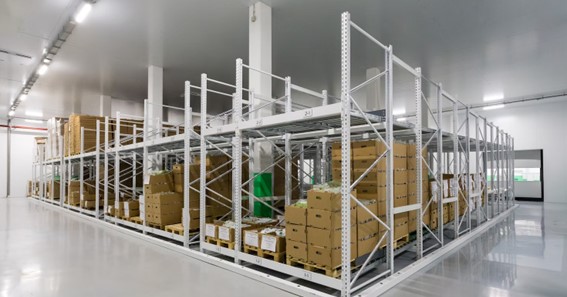Warehouses play an integral part in many business operations, both small and large. From running online retail stores to selling products directly, having your own warehouse space offers several advantages for any type of operation.
Renting is often more flexible and can save money than purchasing, however there are a few important perks to keep in mind when renting or leasing warehouse space.
1. Easy Access
Warehouses offer great potential as an asset when looking for inventory storage space or even office space; it’s just important that you do your research beforehand to find one that matches up best with your specific requirements.
Renting a storeroom can often save money in the long run. You can check here: https://www.risecommercialdistrict.com/michigan/pontiac-office-warehouse-for-lease to see current prices from Rise Commercial. Instead of purchasing it outright, renting it out to other businesses and individuals allows you to save both money and space.
While this arrangement may prove advantageous, keep in mind that rent will still need to be paid. Additional costs associated with running your warehouse such as utilities or maintenance may need to be covered as well.
When looking for a storeroom, security must be top of mind. This will give both employees and customers peace of mind that their belongings will be secure, and will have an effect on both upfront costs as well as ongoing maintenance expenses. When making this decision, security systems play an integral role.
Installing these features will make life much simpler for you, while helping your warehouse to be used more effectively and complete more tasks. As an example, theater groups or schools could rent storeroom space for performances or productions to make extra income and draw in potential new customers. Renting this out would also increase revenue while making your facility more appealing!
An open warehouse space provides businesses of all kinds with flexibility that is invaluable. From smaller companies that require extra room to larger distribution companies that ship products internationally, having this kind of asset at hand is invaluable to business success.
Click here – Customizing Your Promotional Clothing: Best Practices and Design Tips
2. Great Insurance
As part of your businesses warehouse rental contract, it’s vital that you protect yourself from liability by purchasing sufficient insurance to cover products, buildings and employees.
When it comes to commercial storeroom insurance, several policies must be considered when selecting your coverage options. These include general liability, commercial property insurance and workers’ compensation policies.
General Liability Insurance: This coverage protects against your legal liabilities in case someone is injured while visiting your premises or their property is damaged in some way. It provides compensation in case legal action is brought against you by third parties.
This policy also covers your legal fees and expenses if a third party files a negligence or recklessness claim against you, as well as potential slander, libel and reputational harm that might result from claims being brought against you by third parties.
Commercial Property: This policy will cover any losses due to fire, theft, vandalism and other perils which cause damage to your building and any stored equipment or tools that are kept within it.
Consider insuring your warehouse inventory against weather-related disasters, theft and natural calamities to provide additional peace of mind. Your policy can also provide valuable financial relief if goods are lost or stolen during transit – an asset worth having for businesses that rely heavily on shipping shipments.
An effective way to obtain warehouse insurance quotes online is through comparison shopping. Simply provide some basic details about your business and receive customized quotes from multiple insurers; typically the least-expensive policies tend to come from those offering comprehensive coverage; you’ll be able to compare both pricing and coverage limits side-by-side and find which option best meets your needs.
Click here – What Is A Quarter Cup?
3. Low Prices
Renting a warehouse offers several distinct advantages to businesses looking to expand without making the commitment to owning their own storeroom and spending a lot of money. This can be especially useful for smaller firms that need to grow quickly but do not yet possess enough funds for this purchase option.
Maintenance and repairs costs can also be significantly reduced with smart building management systems, particularly important when managing large properties that need regular upkeep to remain functioning optimally.
Save money on repairs and maintenance of buildings while also cutting rent costs by choosing a warehouse located in an area with lower property costs. This will allow you to reduce business expenses while having plenty of cash on hand to cover emergency expenses.
However, when calculating costs associated with leasing a warehouse it is still important to factor all expenses associated with it into your annual budget before signing on the dotted line. You should include taxes, utilities, insurance premiums and routine repairs when doing so.
Before renting a warehouse, make sure that any upgrades required may be affordable during its rental period. Improvement projects can be expensive and time consuming so make sure you can manage this when calculating costs for leasing one.

